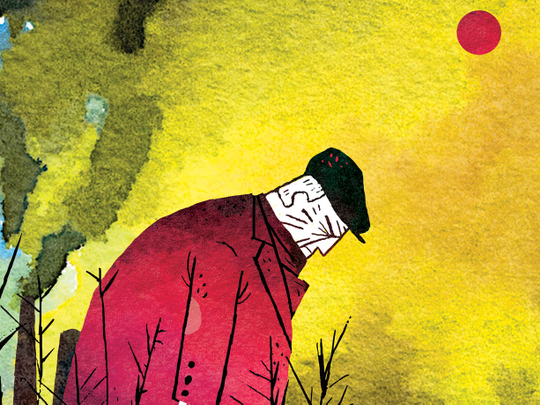
On the Edge
By Rafael Chirbes, translated by Margaret Jull Costa, New Directions, 464 pages, $17
“On the Edge” is not a book you want to read in fits and starts. It is an anti-tweet, a brick of dense prose, that 70-year-old uncle who corners you at a holiday party, grabs you by the lapels and demands you hear him out. Your eyes sometimes glaze over, and you occasionally have to wipe a fleck of whitish spit off your face, but once you give yourself over to his story, you find there are plenty of rewards.
Rafael Chirbes is a master of the kind of Spanish literature that shines most brightly in lyrical descriptive passages and powerful metaphors steeped in the lessons of a classical education, and that falters with tone-deaf dialogue and intense self-importance. Like that uncle, the narrator of “On the Edge”, Esteban, is much more interested in talking than in listening. Conveniently, he has tossed his cellphone into the marsh. The bar and its repertory-theatre Greek chorus of domino players stand in for the town he wishes he had left behind and could merely visit with an anthropologist’s curiosity. His tale is an elaborate mosaic that interweaves reflection with vivid memories — both inherited and his own — and a cacophonous medley of voices he is hard-pressed to filter out, which plague him as he works out his grim endgame.
Conceived during the very last days of the Spanish Civil War, Esteban was born in 1940, just before his Republican father went to prison. The wounds from that conflict still smart, yet Esteban was also a bystander to Spain’s more optimistic phases.
When the book opens in 2010, the nation is in the throes of the hangover that is the recession, which — at his age — Esteban knows he will never see the end of. He took the bait of the boom years and has just lost the family carpentry business built by his grandfather. Esteban’s father is so old he is little more than a prop in diapers against which Esteban’s venom-tinged resentments reverberate, though his redemptive maxim — “We don’t live off other people’s work, but our own” — still rings in his son’s ears like a Marxist curse.
In the light of Esteban’s bankruptcy, the weight of the accusations made against him by the workers he must let go is compounded by the knowledge that his botched attempt at ambition was also a paternal betrayal. Ultimately, father and son are inextricably bound by their pessimism, “the same idea that all men are nothing” but a bag of human waste “tied up in the middle”.
Esteban’s regrets mirror Spain’s: the trickle-down effects of corruption on a small-town carpenter. He rails against his thwarted aspirations and inability to transcend his hometown, Olba, set on a marshy lagoon in the shadows of abandoned construction projects. The marsh is beautiful and polluted; it has been a hunting ground for both animals and resistance fighters, a dump, a graveyard, the primordial sludge whence we all emerged and to which we must return — or in Esteban’s words: “the sole surviving nucleus of a timeless world that remains both fragile and forceful.”
“On the Edge” is the culmination of Chirbes’s work, a dizzying survey of the last 90 years of Spanish history, his ninth novel published before his death this past August, and his first to appear in America in more than 20 years. Margaret Jull Costa’s incandescent translation carries along Esteban’s turbulent torrent, which maintains an extended fever pitch as the various streams of the narrative come together in more of a nadir than a climax. When this book finally releases its grip, you may find your lapels sullied by grubby fingerprints you are in no rush to scrub out.
–New York Times News Service
Mara Faye Lethem is the translator, most recently, of Toni Sala’s “The Boys”.








